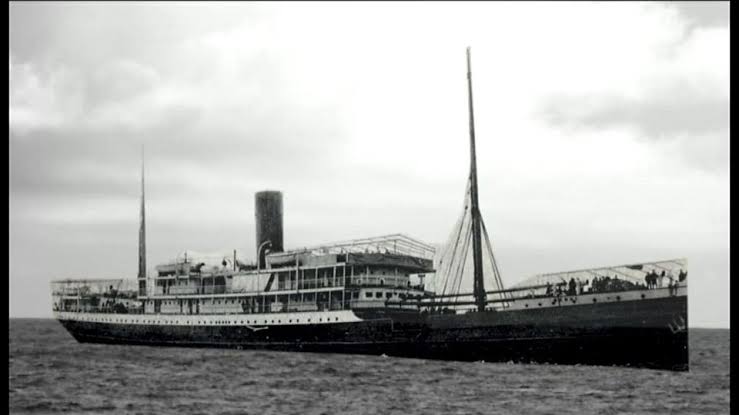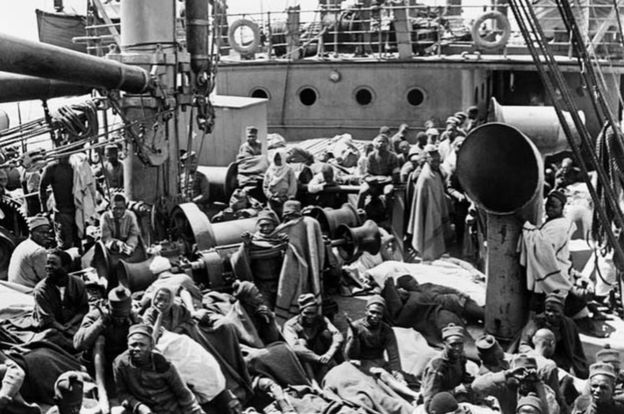Today in Kimberley's History
|
|
|
|
6 days since lifting the Siege of Kimberley, 1900
Extract from "The Diary of a Doctor's Wife – During the Siege of Kimberley October 1899 to February 1900" by Winifred Heberden.
I heard this morning from Captain Davis of the Cape Police that the Barkly Column had received orders to turn aside at the Barrier and go to Schmidt's Drift, as fresh information had come in that 500 Boers were in Barkly and more were returning to Riverton to blow up the pumping engines there.
As Jack had not come back I was afraid he had gone on to Barkly expecting to catch up the troops. However, Harry Gibbs, who had a 'day off' and went on a looting expedition to the Intermediate Station, came back in the afternoon and said Jack was there waiting for further orders.
At 6 p.m. he came in on his own account to report to the Colonel that the water had been left in such a horribly filthy state by the Boers that the troops would soon be ill if a better plan could not be arranged for their water supply. Jack had commandered an ox for the men there so they had a tremendous meal from it, and also some excellent beef tea.
Lord Methuen and Staff arrived in Kimberley to-day, and it is understood that he is to remain as Administrator of the Kimberley Districts. Colonel Kekewich has sent very grateful printed messages round to all the men who have helped to defend Kimberley, which have been much appreciated. Jack was 'Mentioned in Despatches', and in Lord Roberts' First Honours List for the D.S.O.
Extract from "The Diary of a Doctor's Wife – During the Siege of Kimberley October 1899 to February 1900" by Winifred Heberden.
I heard this morning from Captain Davis of the Cape Police that the Barkly Column had received orders to turn aside at the Barrier and go to Schmidt's Drift, as fresh information had come in that 500 Boers were in Barkly and more were returning to Riverton to blow up the pumping engines there.
As Jack had not come back I was afraid he had gone on to Barkly expecting to catch up the troops. However, Harry Gibbs, who had a 'day off' and went on a looting expedition to the Intermediate Station, came back in the afternoon and said Jack was there waiting for further orders.
At 6 p.m. he came in on his own account to report to the Colonel that the water had been left in such a horribly filthy state by the Boers that the troops would soon be ill if a better plan could not be arranged for their water supply. Jack had commandered an ox for the men there so they had a tremendous meal from it, and also some excellent beef tea.
Lord Methuen and Staff arrived in Kimberley to-day, and it is understood that he is to remain as Administrator of the Kimberley Districts. Colonel Kekewich has sent very grateful printed messages round to all the men who have helped to defend Kimberley, which have been much appreciated. Jack was 'Mentioned in Despatches', and in Lord Roberts' First Honours List for the D.S.O.
SS Mendi sinks in the English Channel on the way to France - 1917
The sinking of the SS Mendi on 21 February 1917 became one of South Africa's worst tragedies of the First World War (1914-1919). A total of 646 people died. Only 267 survived the sinking; 195 black men, two of the four white officers and 10 of the 17 white NCOs.
In the pre-dawn darkness of a February morning in 1917, a ship carrying hundreds of black South African men was sunk in the English Channel. But this was no act of war. A Royal Mail cargo ship had ploughed full speed into the SS Mendi - and its captain inexplicably did nothing to help.
The vast majority of those who drowned or died from hypothermia were South Africans recruited to work as manual labourers on the Western Front. Many had signed up hoping they would win more political freedoms if they demonstrated their willingness to help the British Empire's war effort.
The Mendi had already completed a 34-day journey from Cape Town when it sailed past the Isle of Wight in foggy weather on 21 February. At about 05:00 GMT, a Royal Mail packet-boat, the SS Darro, ploughed into the Mendi at full speed, smashing a 20ft (6m) hole on her starboard side. It ripped through to crowded holds where men were sleeping in tightly-packed tiers of bunks.
In his attempt to calm the panicked men, Rev. Isaac Wauchope Dyobha said: "Be quiet and calm, my countrymen. What is happening now is what you came to do ... you are going to die, but that is what you came to do ... I, a Xhosa, say you are my brothers ... Swazis, Pondos, Basotho ... so let us die like brothers. We are the sons of Africa ..."
From the safety of the Darro, Captain Harry Stump stood by and watched - but for reasons that are still murky, did nothing to save the lives of the men. Why didn't he help? The SS Darro sustained only minor damage and there was plenty of room on board, according to the official investigation. Survivors were instead picked up by the destroyer HMS Brisk and then other ships.
South African historian Professor Albert Grundlingh, said in 2017 it was difficult to explain Cpt Stump's actions. "It's shrouded in mystery," he said. "At a tribunal Cpt Stump said it was dark, and he couldn't see in the conditions. Maybe he was confused or lost his nerve. "Was is because the men were black? There has certainly been speculation to that effect, but no firm conclusion. In South Africa, people believed that."
Sources: SA History Online and BBC News
The sinking of the SS Mendi on 21 February 1917 became one of South Africa's worst tragedies of the First World War (1914-1919). A total of 646 people died. Only 267 survived the sinking; 195 black men, two of the four white officers and 10 of the 17 white NCOs.
In the pre-dawn darkness of a February morning in 1917, a ship carrying hundreds of black South African men was sunk in the English Channel. But this was no act of war. A Royal Mail cargo ship had ploughed full speed into the SS Mendi - and its captain inexplicably did nothing to help.
The vast majority of those who drowned or died from hypothermia were South Africans recruited to work as manual labourers on the Western Front. Many had signed up hoping they would win more political freedoms if they demonstrated their willingness to help the British Empire's war effort.
The Mendi had already completed a 34-day journey from Cape Town when it sailed past the Isle of Wight in foggy weather on 21 February. At about 05:00 GMT, a Royal Mail packet-boat, the SS Darro, ploughed into the Mendi at full speed, smashing a 20ft (6m) hole on her starboard side. It ripped through to crowded holds where men were sleeping in tightly-packed tiers of bunks.
In his attempt to calm the panicked men, Rev. Isaac Wauchope Dyobha said: "Be quiet and calm, my countrymen. What is happening now is what you came to do ... you are going to die, but that is what you came to do ... I, a Xhosa, say you are my brothers ... Swazis, Pondos, Basotho ... so let us die like brothers. We are the sons of Africa ..."
From the safety of the Darro, Captain Harry Stump stood by and watched - but for reasons that are still murky, did nothing to save the lives of the men. Why didn't he help? The SS Darro sustained only minor damage and there was plenty of room on board, according to the official investigation. Survivors were instead picked up by the destroyer HMS Brisk and then other ships.
South African historian Professor Albert Grundlingh, said in 2017 it was difficult to explain Cpt Stump's actions. "It's shrouded in mystery," he said. "At a tribunal Cpt Stump said it was dark, and he couldn't see in the conditions. Maybe he was confused or lost his nerve. "Was is because the men were black? There has certainly been speculation to that effect, but no firm conclusion. In South Africa, people believed that."
Sources: SA History Online and BBC News


